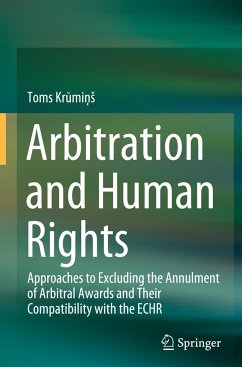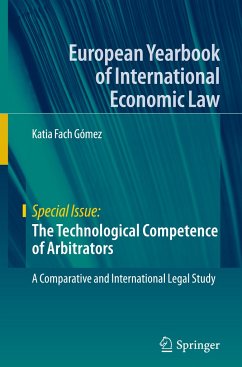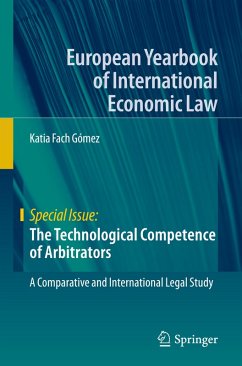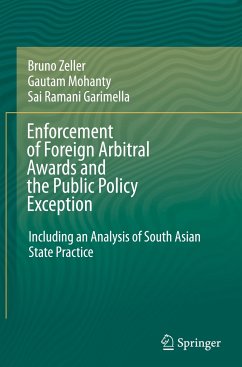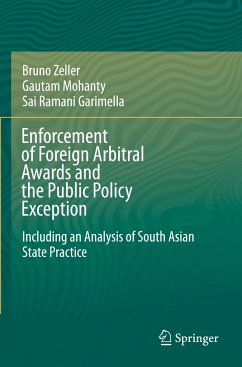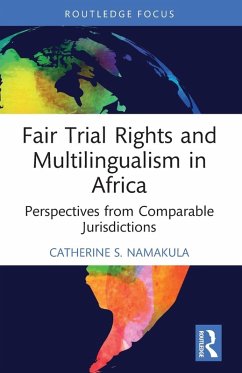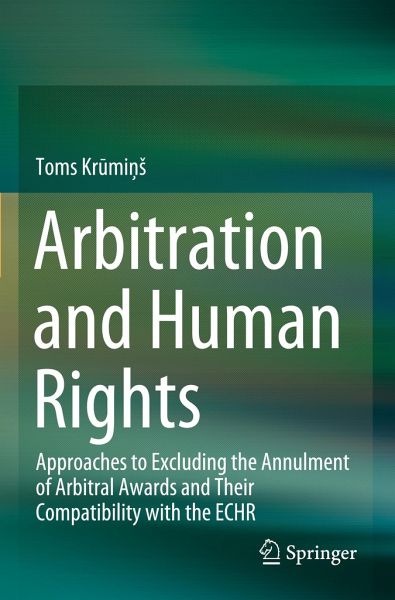
Arbitration and Human Rights
Approaches to Excluding the Annulment of Arbitral Awards and Their Compatibility with the ECHR
Versandkostenfrei!
Versandfertig in 6-10 Tagen
113,99 €
inkl. MwSt.

PAYBACK Punkte
57 °P sammeln!
This book presents a creative synthesis of two ostensibly disparate fields of law - arbitration and human rights. More specifically, it focuses on various legislative approaches to excluding the annulment of arbitral awards (setting-aside proceedings) at the seat of arbitration and evaluates the compatibility of such approaches with the European Convention on Human Rights (ECHR), in particular the right to a fair trial under Article 6(1).The book first assesses the applicability and impact of the ECHR, in particular Article 6(1), on international commercial arbitration. It then analyses a numb...
This book presents a creative synthesis of two ostensibly disparate fields of law - arbitration and human rights. More specifically, it focuses on various legislative approaches to excluding the annulment of arbitral awards (setting-aside proceedings) at the seat of arbitration and evaluates the compatibility of such approaches with the European Convention on Human Rights (ECHR), in particular the right to a fair trial under Article 6(1).
The book first assesses the applicability and impact of the ECHR, in particular Article 6(1), on international commercial arbitration. It then analyses a number of legislative approaches to excluding setting-aside proceedings, focusing on two synergetic phenomena - exclusion agreements and the total lack of setting-aside proceedings in national arbitration law. Lastly, the book investigates to what extent the lack of setting-aside proceedings in national arbitration law may lead to a violation of arbitrating parties' right to a fair trial under Article 6(1), and puts forward certain de lege ferenda recommendations on how to best approach the regulation of setting-aside proceedings in national arbitration law from the standpoint of compliance with the ECHR.
The book first assesses the applicability and impact of the ECHR, in particular Article 6(1), on international commercial arbitration. It then analyses a number of legislative approaches to excluding setting-aside proceedings, focusing on two synergetic phenomena - exclusion agreements and the total lack of setting-aside proceedings in national arbitration law. Lastly, the book investigates to what extent the lack of setting-aside proceedings in national arbitration law may lead to a violation of arbitrating parties' right to a fair trial under Article 6(1), and puts forward certain de lege ferenda recommendations on how to best approach the regulation of setting-aside proceedings in national arbitration law from the standpoint of compliance with the ECHR.





